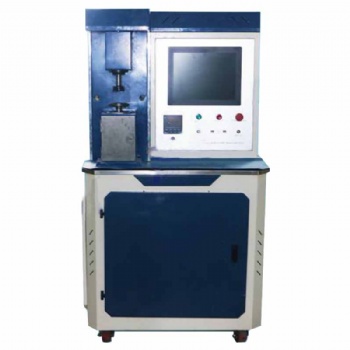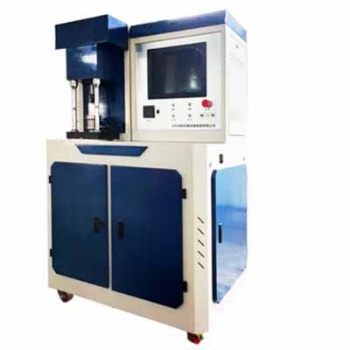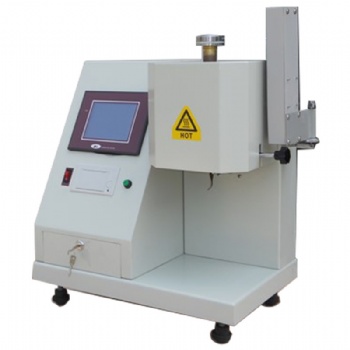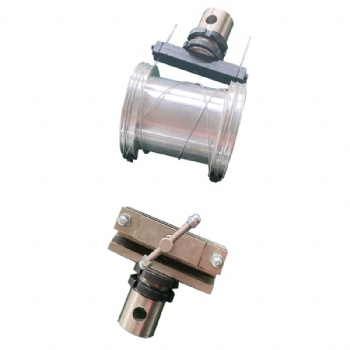News
introductions of anti film tension testing machine about features test types test standards
An anti-film tension test machine is designed to evaluate the tensile properties of thin, anti-film or anti-scratch coated materials, often used in the packaging, automotive, electronics, and optical industries. These machines apply controlled tension to a film sample, measuring its strength, elasticity, and resistance to stretching or tearing. Here’s a breakdown of the test types, applications, relevant standards, specimen preparation, and machine features.
Key Applications of Anti-Film Tension Testing
The anti-film tension test machine is crucial in several industries where thin films and coatings need to meet specific durability and strength requirements:
1.Packaging Films
These films, often used for food, medical supplies, and consumer goods, need to be strong and flexible. Tensile testing helps ensure they are resistant to tearing and stretching, maintaining product integrity.
2.Automotive and Electronics Displays
Anti-scratch and anti-reflective films applied to car displays or electronic screens require durability under mechanical stress. Tensile tests verify that these films can withstand stress without tearing or losing functionality.
3.Optical Films
Anti-glare or anti-reflective films used in eyewear, screens, and display technology need to be strong enough to resist wear and tear. Tensile tests help ensure that the film maintains its optical properties even under tension.
4.Protective Coatings
Films with scratch-resistant coatings for items like lenses, mobile screens, and plastic barriers undergo tensile testing to assess their robustness under physical stress.
Types of Tests Performed on Anti-Film Tension Test Machines
1.Tensile Strength Test
This test measures the maximum stress that the film can withstand while being stretched before it breaks. It indicates the film’s overall strength and its ability to endure mechanical stress.
2.Elongation at Break
Elongation at break measures how much a film stretches before it breaks, providing insight into its flexibility and toughness. This property is critical for films used in packaging or in applications that require flexibility.
3.Tear Resistance Test
This test evaluates the film's resistance to tearing under a specified force. It is essential for applications where the material might experience localized stress or snagging.
4.Yield Strength Test
Yield strength measures the point at which the film begins to deform permanently. This property is important for films that need to maintain shape under stress.
Relevant Standards for Anti-Film Tension Testing
Several standards guide the tensile testing of anti-films, including:
ASTM D882 – Standard Test Method for Tensile Properties of Thin Plastic Sheeting: Commonly used for thin films and coatings, it provides methods for measuring tensile strength, elongation, and yield properties.
ISO 527-3 – Plastics – Determination of tensile properties of films and sheets: This standard outlines the procedures for testing the tensile properties of plastic films and sheeting.
ASTM D1004 – Standard Test Method for Tear Resistance (Graves Tear) of Plastic Film and Sheeting: This is relevant for measuring tear resistance, an important property for packaging and protective films.
JIS K7127 – Japanese standard for testing thin film tensile strength and elongation, commonly used in electronics and display manufacturing.
These standards ensure consistent testing practices, enabling manufacturers to compare results and certify product performance.
Preparing Test Specimens for Anti-Film Testing
Test specimens for anti-film tension testing generally follow these guidelines:
Size and Shape: Films are typically cut into rectangular strips with specific dimensions defined by the relevant standard (e.g., ASTM D882 recommends a width of 15 mm).
Conditioning: Specimens may need to be conditioned at a specific temperature and humidity level before testing to ensure consistent results, especially for films sensitive to environmental conditions.
Grip Area Protection: Some thin films may be sensitive to the gripping mechanism, so the ends are sometimes reinforced to prevent slippage or damage during testing.
Proper specimen preparation is crucial for accurate, repeatable results.
Features of Anti-Film Tension Test Machines
Anti-film tension test machines are specially equipped to handle the unique properties of thin, flexible films:
1.High-Precision Load Cells
These machines use sensitive load cells that can accurately measure low force values typical for thin films. High precision is crucial for capturing small differences in tensile strength and elongation.
2.Adjustable Crosshead Speed
The machine’s crosshead speed can be adjusted according to the standard or application requirements, ensuring appropriate strain rates for different types of films.
3.Sensitive Clamping Mechanism
Anti-film test machines often include specialized grips designed to secure thin films without damaging or slipping. Pneumatic or self-tightening grips are common to apply consistent force and avoid slippage.
4.Non-Contact Extensometers
Non-contact extensometers or video extensometers are often used to measure elongation accurately without physically touching the film, reducing the risk of damaging delicate specimens.
5.User-Friendly Control Software
The software for these machines allows for easy setting of test parameters, real-time data monitoring, and automatic reporting. It often includes pre-configured test setups for relevant standards like ASTM D882 and ISO 527-3.
6.Data Logging and Analysis
Advanced anti-film tension testing machines record and analyze data for parameters such as peak load, yield strength, and elongation at break. The data is often exported for further analysis or report generation.
Conclusion
The anti-film tension test machine is an essential tool for industries relying on thin films and coatings, allowing accurate assessment of mechanical properties like tensile strength, elongation, and tear resistance. Adhering to standards like ASTM D882, ISO 527-3, and ASTM D1004 ensures reliable results and product quality. With specialized features, including high-precision load cells, sensitive clamping mechanisms, and non-contact extensometers, these machines support manufacturers in delivering durable and high-quality anti-films suitable for various applications.
Investing in an anti-film tension testing machine helps companies ensure their films meet rigorous quality standards, offering confidence in the performance of these materials in demanding applications.
computerized pellet compression testing machine, hydraulic horizontal tensile testing machine, electronic horizontal tensile testing machine, digital display electronic universal test machine
Categories
Contact Us
- +86-18615632092
- sophie@jnwtbte.com
- +86-18615632092




 售前客服
售前客服